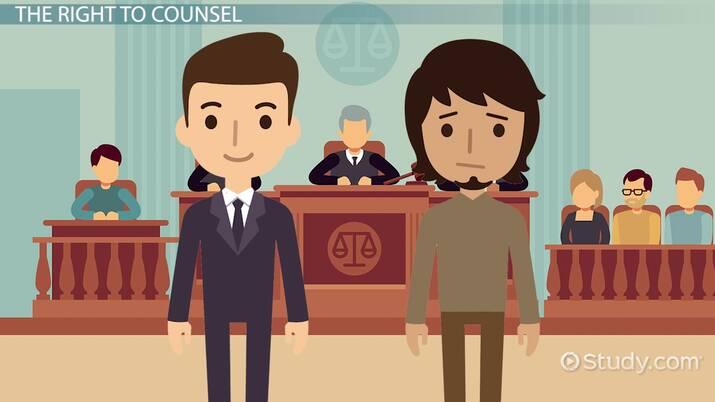The debate over the right to counsel for indigent defendants is heating up as legal experts, policymakers, and civil rights advocates clash over the adequacy and implementation of public defense systems across the country. With mounting concerns about fairness, access to justice, and the quality of legal portrayal for those unable to afford private attorneys, discussions are intensifying on how to secure this essential right effectively and equitably.
Table of Contents
- Debate Over Funding Shortages Puts Public Defense Systems Under Strain
- Lawmakers Face Pressure to Standardize Right to Counsel Nationwide
- Experts Call for Increased Training and Resources for Public Defenders
- Advocates Push for Legislative Reforms to Expand Access and Ensure Fair Trials
- In Conclusion
Debate Over Funding Shortages Puts Public Defense Systems Under Strain
Public defense offices nationwide are grappling with a sharp increase in caseloads amid persistent funding shortages, pushing the limits of their ability to provide effective counsel to indigent defendants. Many public defenders report having to juggle hundreds of cases concurrently, a situation exacerbated by stagnant budgets that fail to keep pace with mounting demand. The strain on resources has led to concerns over compromised defense quality, with some attorneys warning that rushed cases risk miscarriages of justice and violations of defendants’ constitutional rights.
Critics argue that systemic underfunding causes a domino effect, impacting not only defendants but also the broader community. Key issues raised include:
- Insufficient staffing levels forcing defenders to forgo thorough investigation and client consultation.
- Inadequate training and support for overwhelmed public defenders struggling to meet courtroom demands.
- Long delays in case resolution, prolonging pretrial detention and exacerbating jail overcrowding.
As the debate intensifies, policymakers face mounting pressure to reassess funding structures and prioritize the safeguarding of the fundamental right to counsel, which remains a cornerstone of the American justice system.
Lawmakers Face Pressure to Standardize Right to Counsel Nationwide
Amid growing concerns over disparities in legal representation, legislators are increasingly urged to enact uniform standards ensuring the right to counsel for indigent defendants across all states. Advocacy groups and legal experts argue that inconsistencies in funding and access to defense attorneys create a patchwork system, undermining the principle of fair trials.Pressure mounts as studies reveal that inadequate legal support disproportionately affects marginalized communities, leading to wrongful convictions and unjust sentencing.
Key issues driving lawmakers’ urgency include:
- Variability in public defender resources from state to state
- Lengthy case delays caused by overloaded defense counsel
- Federal calls for clearer accountability and measurement standards
- Rising public awareness of systemic inequities in criminal justice
The debate now centers on how best to standardize protocols without compromising local autonomy. Proponents emphasize that a federally guided framework could establish minimum thresholds for compensation, caseloads, and training, ensuring every defendant, regardless of zip code, receives competent legal defense.Opponents caution against a one-size-fits-all approach that may not address unique regional challenges. Still, as pressure from civil rights organizations swells, momentum grows for decisive legislative action aimed at safeguarding this fundamental right nationwide.
Experts Call for Increased Training and Resources for Public Defenders
Leading legal experts and advocacy groups are urging policymakers to significantly enhance the support system for public defenders nationwide. They emphasize that without adequate training programs, access to investigative resources, and manageable caseloads, defenders cannot effectively uphold the constitutional right to counsel. The increasing complexity of cases requires specialized knowledge and continuous skill development, which many public defense offices currently lack due to chronic underfunding and staff shortages.
Calls for reform highlight key measures including:
- Thorough continuing legal education tailored specifically to indigent defense challenges
- Increased funding for expert witnesses and investigative support to level the playing field against well-resourced prosecutors
- Reduced caseload limits to ensure defense attorneys have sufficient time to dedicate to each client
Advocates argue that these steps are essential not only for protecting defendants’ rights but also for upholding the integrity of the criminal justice system itself.
Advocates Push for Legislative Reforms to Expand Access and Ensure Fair Trials
Legislative advocates are intensifying efforts to overhaul the current system governing the right to counsel for indigent defendants. They argue that the patchwork of existing laws and underfunding has led to disparities in legal representation, which in turn jeopardizes fair trial outcomes. Proposed reforms include expanding eligibility criteria, increasing funding for public defender offices, and implementing standardized training to ensure competent legal assistance across jurisdictions. These measures aim to bridge gaps that have long disadvantaged low-income defendants, perhaps transforming the landscape of criminal justice.
Supporters of reform highlight several key priorities:
- Worldwide appointment of counsel in all cases where liberty is at risk, without restrictions based on case type or initial charges;
- Strengthening oversight mechanisms to guarantee quality and timeliness of legal representation;
- Enhanced clarity and data collection to track outcomes and ensure accountability;
- Increased collaboration between legislative bodies and civil rights organizations to sustain meaningful change.
Critics warn of budgetary impacts, yet advocates maintain that investing in robust defense ultimately reduces costly retrials and wrongful convictions, safeguarding constitutional guarantees. With Congress holding the sole authority to enact such laws, this debate is rapidly moving to the forefront of legislative priorities.[[1]] [[2]]
In Conclusion
As the debate over the right to counsel for indigent defendants continues to intensify, stakeholders on all sides remain steadfast in their positions. With profound implications for justice, fairness, and public resources, the outcome of this discourse will shape the legal landscape for years to come. Lawmakers, advocates, and communities alike watch closely as efforts to ensure adequate representation for the most vulnerable in the legal system gain renewed urgency. The question remains: how will the justice system balance the need for equitable defense with practical constraints? The answer could redefine the meaning of the right to counsel for future generations.

